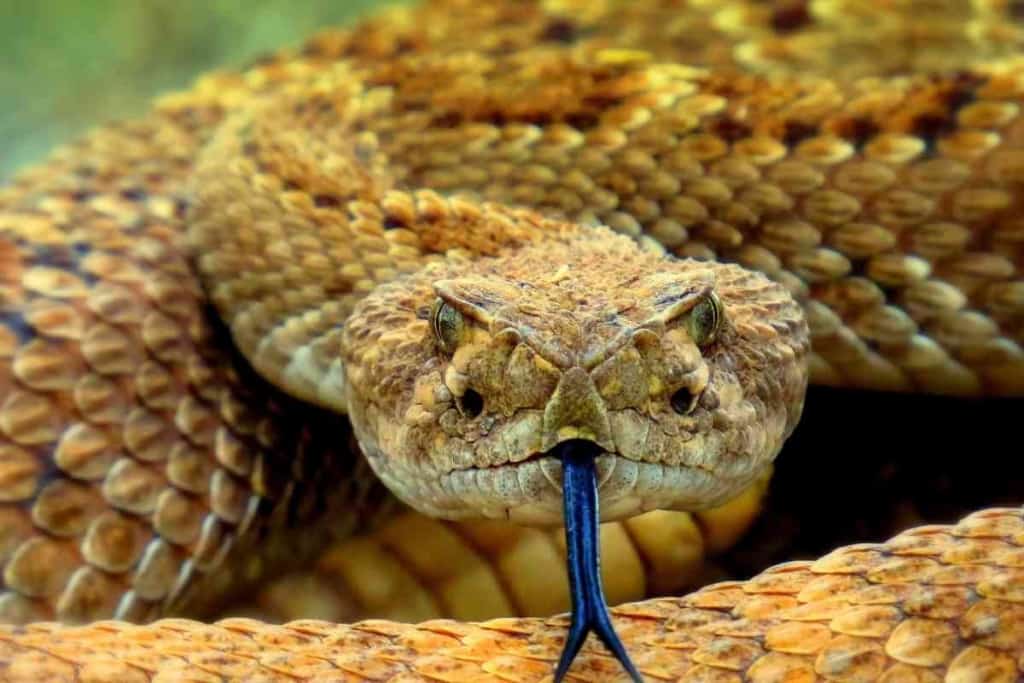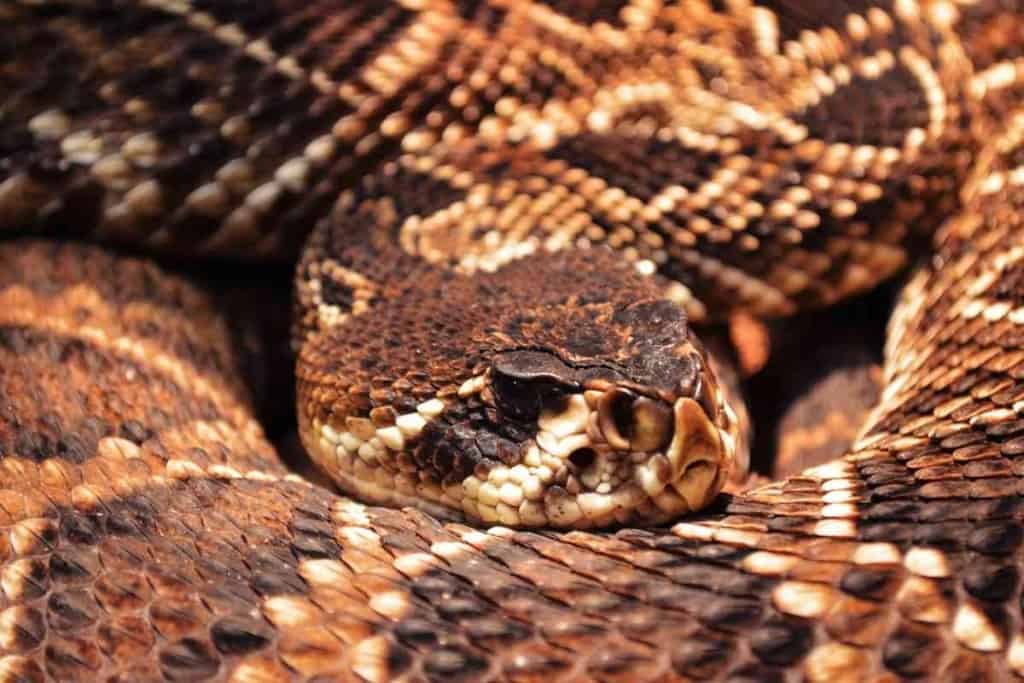Can You Survive A Rattle Snake Bite Without Treatment?
It can be terrifying to be bitten by a rattlesnake. As rattlesnakes are venomous, it is important to know what to do if you are bitten by one.
In the unlikely event that you are bitten by a rattlesnake, it is of extreme importance for the health and safety of you and anybody with you that you know the best steps to take to ensure a positive outcome.

Can You Survive A Rattle Snake Bite Without Treatment?
A rattlesnake bite needs immediate medical attention. If you or someone you know is bitten, it is crucial to get medical treatment in order to avoid severe tissue damage, organ failure, and potentially death.
For anyone that is outdoors frequently and lives in an area with rattlesnakes, it is of extreme importance to know how to handle a rattlesnake bite. If you or someone you know is bitten by a rattlesnake, there are steps you can take to ensure that the bite is cared for immediately and properly.
According to the American Red Cross, over 7,000 people are bitten by snakes per year, and fewer than 5 people actually die from their bites. However, it is critically important to seek treatment for a rattlesnake bite.
There are steps that can be taken following a rattlesnake bite to slow down the spread of the venom and reduce the risk of severe long-term health issues.
Although there are different tips out there for a rattlesnake bite, the article below discusses the best course of action following a rattlesnake bite according to medical experts in the field.
Do You Need to Go to the Hospital?
When a bite from a rattlesnake first happens, it can be alarming and cause panic. It is important to stay calm regardless if you were bitten or someone that you are with was bitten.
Venom from a rattlesnake is poisonous and it is important to get treatment as soon as possible. Although not usually fatal, a rattlesnake bite does need treatment in order to avoid further medical problems.
The faster you can seek treatment for the bite, the better the long-term outcome will be. Getting to a hospital as soon as possible will ensure that you get antivenom in your system within a good timeframe from the initial bite.
Immediate Steps to Take
Immediately following the bite of a rattlesnake, it is important to call 911. If you can get to a hospital by having someone drive you then you can go to the emergency room right away.
If you are unable to be driven then you should attempt to call 911 to have an ambulance come.
If possible, try to remember what the snake looked like. As there are over 30 species of rattlesnakes, it is important to take a quick mental picture if possible to let the doctors know.
This way they can administer the proper antivenom.
If you cannot remember what the snake looked like, that is okay. The doctors at the hospital will be able to give you antivenom regardless.
The below tips are good to know in the event that you are having to wait for an ambulance or while driving to the hospital.
- Do not raise the bitten area above your heart in order to keep the venom from going to your heart quickly.
- Try to stay still if you are able to so you do not raise your heart rate and circulate your blood faster.
- Let the wound bleed as some of the venom may come out.
- Do not panic. Try to stay as calm as you can.
- Do not clean the wound, use ice, or any water on the bite.
- Remove any tight clothing or jewelry in case the limb starts to swell.
It is also important to not provoke the snake any further after being bitten. If you can, safely move as far away from the snake as possible. Do not try to capture it or kill it.
This can increase the chances of getting bit again, especially if you could potentially be around a female snake that is pregnant or protecting her young.
If you are able to photograph the snake from a distance, you can do so.

Symptoms of a Rattlesnake Bite
The most immediate thing that will be noticed following a rattlesnake bite is that you will most likely see puncture wounds in the skin from the fangs of the snake.
There will be some immediate pain, tingling, or burning at the bite location.
As the venom progresses through your system, you may also experience things such as:
- Nausea
- Vomiting
- Sweating
- Lightheadedness
- Numbness throughout the body
- Blurred vision
- Difficulty breathing
- Fainting
Timeline of a Rattlesnake Bite
From the time a rattlesnake bite occurs, it is best if you can get treatment within 30 minutes. The longer the venom remains in your system, the more damage it is doing to tissue and organs.
As the hours go by, the tissue will swell and you have the potential for long-term tissue damage that can result in amputation as well as permanent organ damage.
What Is In Rattlesnake Venom?
Due to the extreme reactions that someone can experience when they have rattlesnake venom in their system, it is good to know what is in the venom that causes these reactions.
Rattlesnake venom is full of hemotoxins and neurotoxins. The hemotoxins in the venom are what is going to target tissues and blood.
This can cause hemorrhaging and necrosis. The neurotoxins target the nervous system. This can cause paralysis.
Although each venomous snake has some levels of hemotoxins and neurotoxins, these levels will vary by species, and occasionally within the species they can vary by region.
What Does Antivenom Do?
Antivenom is composed of antibodies that can disable the venom that is running through your body.
Once the antivenom is injected into your body, then the antibodies can help to neutralize the venom and your body can slowly return to its normal state.
Antivenom is usually created by injecting a small amount of snake venom into a large animal such as a horse.
The antibodies are then created by that animal and removed from their system via a blood draw. This is then concentrated and purified into an antivenom for humans.
Although antivenom can help to prevent damage to tissues and organs, it cannot fully reverse the damage that has already been done.
This is why the timeline is crucial. The sooner that you can receive antivenom, the better the chances are of not having any long-term health side effects.
What If You Are Not Near a Hospital?
There are instances where people are out hiking or camping and they are not directly near a hospital when bitten by a rattlesnake.
In these instances, it is of utmost importance to call for help immediately. If you are with someone else, they may need to back for help if you are out of cell phone service range.
Most of the time, if you are in a secluded area, they can contact a rescue helicopter to pick you up and fly you to a nearby hospital.
Time is crucial when it comes to venomous snake bites and it is important to get treatment by any means necessary.
If you are out alone and bitten, you may have to figure out the best path to get to help and start to make the walk back on your own.
If it comes down to survival, you will have to start moving until you can get the help you need.
How to Avoid a Rattlesnake Bite
Although rattlesnake bites can happen regardless of how careful you are, there are some tips to help avoid getting bitten.
- Wear Appropriate Clothing When Hiking– If you are going to be hiking outdoors in remote areas, it is important to wear the proper clothing. At minimum wear hiking boots that go above your ankle. This will help prevent a snake from striking at your ankle if you come within striking distance of them.
- Stay on Trails and Designated Paths– You are less likely to run into a snake on a designated trail or path. If you venture off into the brush then you are more likely to wander into a snake’s territory.
- Be Aware Before Picking Up Rocks and Sticks– If you are going to pick up large items such as sticks and rocks then you should check before moving them. Snakes will hide under items such as these so it is easy to get bitten if you do not look before putting your hand down there.
- Do Not Provoke or Bother a Snake– This goes without saying, but do not provoke or bother a snake if you do come across one. Move away from it slowly and go in the opposite direction. If you start poking or bothering it, then it will feel threatened and be more likely to strike at you.
